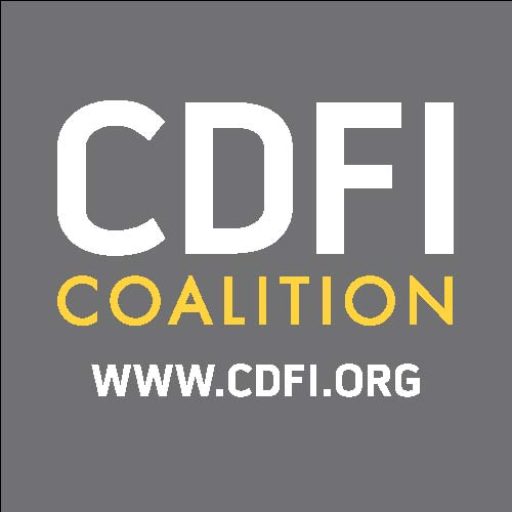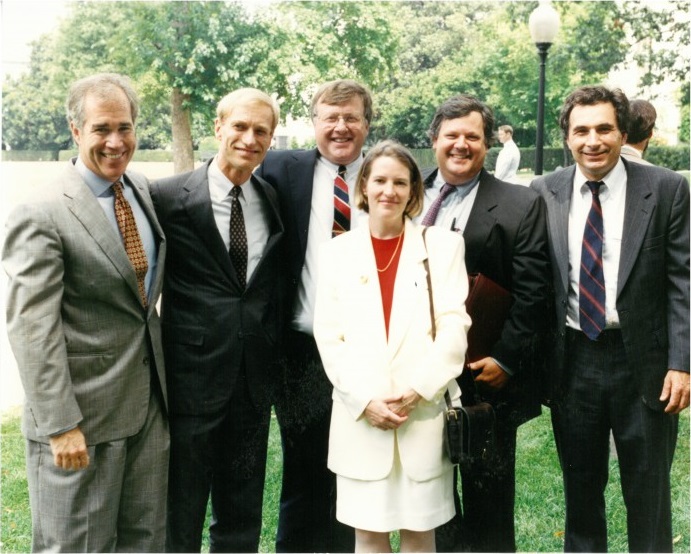The CDFI Coalition is the unified national voice of community development financial institutions. Our mission is to encourage fair access to financial resources for America’s underserved people and communities.

Formed in 1992 as an ad-hoc policy development and advocacy initiative, the Coalition of Community Development Financial Institutions (CDFI Coalition) is the lead national organization in the United States promoting the work of community development financial institutions (CDFIs). Through its member organizations, the Coalition represents CDFIs working in all 50 states and the District of Columbia. This national network of CDFIs includes community development loan funds, community development banks, community development credit unions, microenterprise lenders, community development corporations and community development venture capital funds. The CDFI Coalition coordinates industry wide initiatives to increase the availability of capital, credit and financial services to low-income communities across the nation.
Work of the CDFI Coalition
The CDFI Coalition has been an advocate for CDFIs since 1992. As the leading voice for CDFIs nationwide, the Coalition actively advocates on policy matters, legislative issues and regulatory rules relevant to community development finance. The Coalition is also the primary advocate for the CDFI Fund, the single largest provider of available funds for CDFIs.
The CDFI Coalition operates a variety of programs to increase public knowledge about CDFIs and promote capacity building within the industry. The CDFI Coalition:
- Provides a forum for cross-sector communication and collaboration among national CDFI leaders through its Industry Leadership Forum.
- Promotes sound public policy related to CDFIs through education and advocacy.
- Monitors the activities of the CDFI Fund, the federal program created to support CDFIs nationwide.
- Sponsors the CDFI Institute, a cross-sector, national policy conference designed to build capacity and promote networking and collaboration.
- Produces an E-newsletter to inform colleagues and associates of major news affecting the CDFI Field.
- Operates an educational and informative website on community development finance.
The CDFI Coalition works to focus the attention of the Administration, Congress and other policy holders on the needs of CDFIs.
This is done through:
- Direct advocacy on Capitol Hill to represent the voices and concerns of CDFIs
- Facilitating contact between CDFIs and members of Congress
- Keeping CDFIs informed and involved with community development finance legislation, policy, and regulatory issues and CDFI Fund appropriation
- Regular contact with CDFI Coalition members and discussion of concerns and issues
Impact we have made:
- Instrumental in creating the CDFI Fund (see: History of the CDFI Fund)
- Worked to dramatically increase appropriations to the CDFI Industry through the CDFI Fund
- Fought to keep the CDFI Fund when the Administration tried to close it down
- Played an important role in the passage of the New Market Tax Credit program
The History of the CDFI Coalition

The CDFI Coalition mobilized a grassroots campaign spanning all 50 states to urge the passage of the legislation. In a strong display of bipartisan support, both houses of Congress voted overwhelmingly in favor of creating the CDFI Fund. On September 23, 1994, President Clinton signed the bill into law in front of the leaders of the CDFI Coalition, and more than 300 CDFI practitioners and borrowers.
Since the creation of the CDFI Fund, the CDFI Coalition has conducted public education and advocacy programs to promote the CDFI industry and its mission to provide financial services and capital to low-income and underserved communities. The Coalition has served as both an advocate for the CDFI Fund and a constructive critic of the federal agency when the Fund’s actions do not appropriately support CDFIs or the communities they serve. The Coalition was instrumental in the creation of the Small and Emerging CDFI Assistance program, a CDFI Fund initiative to direct technical and financial assistance to developing CDFIs.
The CDFI Coalition also played an important role in the passage of the New Markets Tax Credit and the New Markets Venture Capital Program, part of the Community Renewal Tax Relief Act of December 2000. In 2002, the CDFI Coalition moved from Philadelphia, PA to its current home in the nation’s capitol in order to maximize the organization’s visibility with federal policy makers. The Coalition also established its independence as a nonprofit charitable organization and elected its first Board of Directors and officers.
